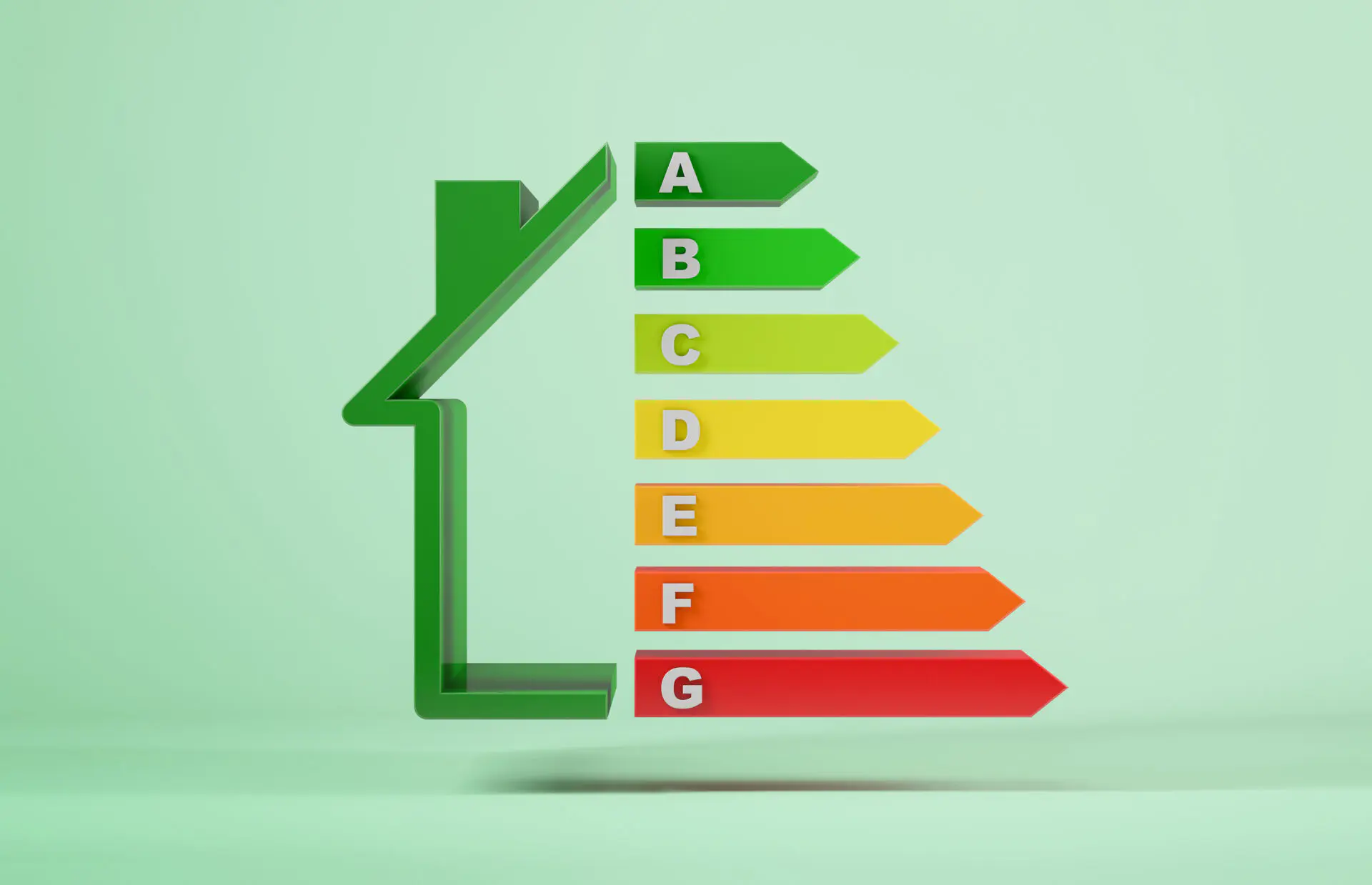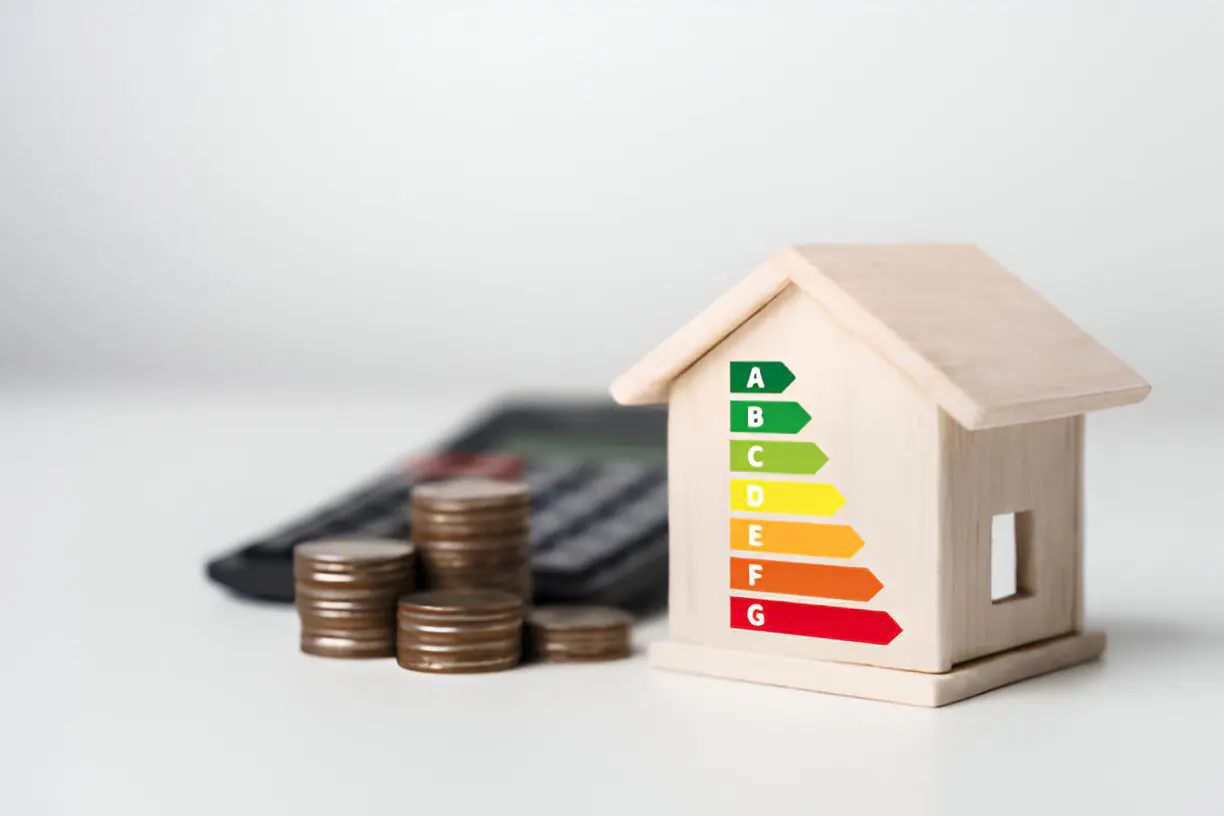In the realm of commercial real estate, the Energy Performance Certificate (EPC) is increasingly recognized not just as a regulatory requirement but as a critical element in property valuation and marketability. This certificate, which assesses buildings on a scale from A (most efficient) to G (least efficient), can significantly influence leasing dynamics, operational costs, and investment returns. As stakeholders navigate the complexities of obtaining and improving EPC ratings, they grapple with the challenges of interpreting the nuanced impacts these ratings have on property strategies. Understanding the interplay between EPC ratings and commercial building value could reveal opportunities for enhancing asset performance, yet many nuances of this relationship remain underexplored. Let’s understand the Energy Performance Certificate for Commercial Buildings.
What is an EPC for Commercial Properties?
An Energy Performance Certificate (EPC) for commercial properties serves as a crucial indicator of the building’s energy efficiency. This document not only reflects the intrinsic energy characteristics of a property but also emphasizes its impact on the environment.
The significance of an EPC extends beyond a mere regulatory obligation; it encapsulates a commitment to commercial sustainability and operational cost efficiency.

The rating scale, from A (most efficient) to G (least efficient), offers a clear metric of performance that can influence investment decisions, asset values, and tenant selections. This is particularly pertinent in a market where ecological credentials increasingly dictate commercial desirability and viability.
An optimal EPC rating can significantly enhance a property’s appeal to eco-conscious investors and renters who prioritize energy efficiency as a determinant of their business image and operational expenditure.
Moreover, the process of obtaining an EPC encourages property owners to adopt energy-saving measures. This not only aligns with global sustainability goals but also reduces long-term operational costs, presenting a dual advantage.
Consequently, the EPC’s role transcends its initial function as a compliance tool, evolving into a strategic asset in the commercial property market, driving both ecological responsibility and economic benefit.
EPC Requirements for Commercial Buildings in London, Energy Performance Certificate for Commercial Buildings
London’s regulatory framework mandates that all commercial buildings secure an Energy Performance Certificate (EPC) before they are sold or leased. This requirement is part of a broader strategy to improve energy efficiency and reduce carbon emissions across the city. The EPC rates buildings from A (most efficient) to G (least efficient) and provides recommendations for enhancing energy performance.
EPC exemptions exist and are critical for potential sellers and leasers to understand. Buildings that are officially protected as part of a designated environment or due to their special architectural or historical merit are sometimes exempt if compliance with minimum energy performance requirements would unacceptably alter their character or appearance. Temporary buildings with a planned time of use of two years or less, industrial sites, workshops, and non-residential agricultural buildings with low energy demand also fall under exemptions.
Non-compliance can lead to significant penalties. The enforcement of EPC requirements in London includes compliance penalties that can escalate depending on the duration of the infringement and the size of the building.
| EPC Aspect | Detail |
|---|---|
| Penalty for Non-Compliance | Up to £5,000 based on building size |
| Exemption Categories | Historical significance, temporary use |
| Validity Period | 10 years from issuance |
Understanding these aspects ensures compliance and fosters a more sustainable urban environment.
How to Obtain an EPC for a Commercial Property, Energy Performance Certificate (EPC) for Commercial Buildings
Securing an Energy Performance Certificate (EPC) is a crucial step for commercial property owners intending to sell or lease their premises.

The EPC process for a commercial property is detailed and must be handled with precision to ensure legal compliance and marketability. Here is a step-by-step guide to obtaining an EPC:
- Identify a Qualified Assessor: Only accredited assessors can conduct EPC assessments. It is essential to choose a professional with experience in commercial properties to ensure that they understand the complexities and specific requirements of commercial energy assessments.
- Schedule an Assessment: Coordination with the assessor to visit the property is crucial. They will need access to various parts of the building, from heating systems to lighting and insulation. The assessment typically involves a thorough inspection of the premises to gather necessary data.
- Review and Implement Recommendations: After the assessment, the assessor will issue an EPC that includes an energy efficiency rating and suggestions for improving energy performance. While the recommendations are not mandatory, implementing them can significantly enhance the property’s marketability and energy efficiency.
This process not only aligns with legal requirements but also promotes sustainability and operational efficiency in commercial real estate markets.
Understanding EPC Ratings for Commercial Buildings
Having outlined the process to obtain an Energy Performance Certificate (EPC) for commercial properties, it’s pertinent to explore what these ratings signify and how they influence commercial building management.
EPC ratings, ranging from A (most efficient) to G (least efficient), encapsulate the energy performance of a building. This scale is crucial not only for potential buyers or lessees but also for owners aiming to evaluate and enhance their property’s energy efficiency.
Understanding these ratings allows stakeholders to gauge the energy consumption implications of their commercial spaces, directly impacting operational costs and sustainability goals. Buildings with a higher energy rating (closer to A) typically incur lower energy costs, contributing to a more attractive investment profile and enhanced occupant satisfaction.
Conversely, buildings towards the lower end of the scale (closer to G) might face challenges in attracting tenants and may incur higher costs due to potential energy inefficiencies.
EPC implications extend beyond mere operational considerations; they also influence strategic decisions regarding property upgrades and market positioning. As regulatory frameworks for energy efficiency tighten, the significance of a favorable EPC increases, making it a critical factor in the commercial real estate market.
Thus, a deep understanding of EPC ratings is indispensable for effective commercial building management.
Improving Energy Efficiency in Commercial Spaces
Improving energy efficiency in commercial spaces not only aligns with global sustainability efforts but also significantly reduces operational costs and increases property marketability.
A strategic approach to enhancing energy performance involves comprehensive energy audits and the integration of sustainable materials throughout the building’s design and operations. Energy audits systematically assess energy use and efficiency, identifying cost-effective measures to reduce energy consumption and environmental impact. By implementing the recommendations from these audits, commercial properties can achieve substantial energy savings.
To further this initiative, consider the following strategies:
- Utilization of Sustainable Materials: Opt for building materials that provide better insulation and reduce energy loss, such as high-performance glass and recycled insulation products. These materials help maintain internal temperatures and decrease the reliance on heating and cooling systems.
- Advanced Building Automation Systems: Integrate smart systems that optimize energy consumption by automatically adjusting lighting, heating, and cooling based on occupancy and time of day.
- Renewable Energy Sources: Invest in renewable energy technologies like solar panels or wind turbines to decrease dependency on non-renewable power sources, thus lowering operational costs and enhancing the building’s EPC rating.
Implementing these measures not only contributes to environmental preservation but also boosts the economic value of the property.
Costs of EPC for Commercial Buildings
While implementing energy efficiency measures significantly enhances a commercial building’s performance and marketability, it is equally important to consider the financial aspects associated with obtaining an Energy Performance Certificate (EPC). The cost of securing an EPC can vary significantly depending on several factors including the size of the property, its complexity, and the location. Typically, EPC pricing for commercial buildings ranges from a few hundred to several thousand pounds.

The certification process itself involves a detailed assessment by a qualified assessor who evaluates the energy efficiency of the building using standardized methods. This assessment includes an examination of the building’s heating systems, insulation levels, lighting installations, and other relevant factors.
The complexity of this process can also affect the overall cost. Larger commercial properties or those with complex energy systems may require more extensive evaluations, thus increasing the price.
It is crucial for property owners and managers to factor in these costs when budgeting for property assessments or when planning energy efficiency improvements. Investing in a thorough and professional EPC can not only ensure compliance with regulations but also provide a clear pathway for enhancing energy performance, ultimately leading to potential savings in operational costs.
How Often Should EPCs Be Renewed for Commercial Properties?
Energy Performance Certificates (EPCs) for commercial properties must be renewed every ten years to ensure ongoing compliance with current energy efficiency standards. This ten-year cycle is crucial as it aligns with technological advancements and changes in building regulations that could impact energy efficiency.
The renewal process is not merely a bureaucratic formality but a critical evaluation to ensure that buildings meet or exceed contemporary environmental standards.
Key aspects of the EPC renewal process include:
- Timeliness: Ensuring that the EPC is renewed before expiration is essential for compliance. Failure to renew on time can result in penalties and may affect the building’s marketability.
- Professional Assessment: A certified assessor must conduct the evaluation. This professional will update the EPC based on the latest methodologies and adjustments in energy standards.
- Documentation and Updates: Property owners should maintain records of any renovations or energy efficiency improvements, as these can influence the EPC rating.
Understanding the EPC validity and adhering to the renewal process is not only a legal obligation but also an opportunity to enhance the energy performance of commercial buildings.
This proactive approach can lead to significant energy savings and sustainability benefits.
Conclusion
In conclusion, the Energy Performance Certificate is an essential tool for assessing and enhancing the energy efficiency of commercial buildings. It not only aids in meeting regulatory requirements but also serves as a critical factor in property valuation and marketability. By understanding and improving EPC ratings, property owners can significantly reduce operational costs and contribute to environmental sustainability. Regular renewal and adherence to EPC guidelines are imperative for compliance and optimization of energy performance in commercial spaces.









